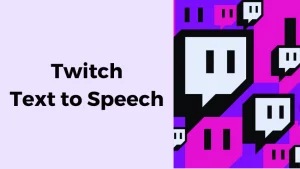Job hunting is tough, and the pandemic is not making things easier for any of us. There is no denying that the pandemic has introduced many challenges to our professional lives. But it has also made some positive impacts on the job markets globally.
Before the pandemic, remote work was considered a luxury. However, companies nowadays view remote work as not only convenient but also easily manageable!
As a result, many companies have stopped limiting their recruitment efforts to a particular geographical area. Qualified candidates all around the world have greatly benefitted from this paradigm shift. The transcriber community is not an exception!
- But how do you qualify as a suitable candidate for a transcriber role?
- What skills do you need to possess? What tools?
- How to get started?
So many questions! But don’t worry. In this article, we will go through each of these questions in detail. Apart from the above, we will also answer some other essential questions that stump newcomers early on in their journey.
What is Transcription?
Before we dig deeper into the world of transcriptionists and all of their skills and tools, let’s answer a fundamental question: what is transcription?
Transcription is the process of converting an audio/video recording into text format.
[A friendly note: Do not Google transcription to cross-check this sentence! Google transcription in writing. Ignore this if you studied biology in college.]
That’s all well and good, but why is transcription necessary?
Need for Transcription
Why transcribe? It is a simple yet powerful question.
Why transcribe when you have already put so much effort into producing the perfect audio/video content? Right?
Well, there are a few advantages:
- Accessibility
- The primary reason for transcribing your content is to make it accessible to a larger audience.
- Because transcription makes content available in written format, it becomes easier for people with hearing problems to consume it.
- Searchability
- Searching for a word or phrase spoken in an audio recording of a speech is not possible.
- But if you were to transcribe that recording, you can search for any term you wish to look up.
- Improved SEO
- Making your content searchable not only helps humans it also assists search engine bots.
- Although search engine bots have advanced remarkably well to make searching on the Internet easy and fast, they still lack the functionality to crawl multimedia objects, such as images, audio recordings, etc.
- By keeping a transcript of your recordings available on your website, you can improve your content’s SEO by assisting the bots in crawling it.
Outside of the benefits listed above, there are many other reasons why you would want to transcribe your content. These reasons range from adding interactivity to your content to increasing the engagement rate of your content.
In short, transcribing your content will benefit your overall business strategy regardless of the nature of your KPIs.
Who is a Transcriptionist?
Now that we know about transcription and its benefits, let’s talk about the transcriptionist.
A transcriptionist is someone who transcribes audio/video recordings into text format.
As various industries that generate a high volume of audio/video data require transcribing services, a transcriptionist has many options in terms of domains.
Some well-known domains with high demand for transcriptionists:
- Legal
- Medical
- Education
- Journalism
- Content creation
But choosing a preferred domain comes later. First, you have to understand how transcriptionists convert audio/video recordings into text.
How? By listening to the recordings, of course.
It usually takes approximately 4 hours to transcribe an hour of recording. As such, a transcriptionist has to have good listening skills to complete their tasks.
Skills of a Transcriptionist
Diving into the intricacies of transcriptionist skills, let’s unravel the core attributes that pave the path to mastering this role. As we embark on this journey, we’ll uncover the fundamental proficiencies and qualities that not only define a proficient transcriptionist but also serve as the building blocks for excelling in this field. Whether it’s a knack for keen listening, a sharp eye for detail, or the ability to maintain consistency in formatting and language conventions, these skills collectively contribute to the art of transforming spoken words into written text with utmost precision. So, let’s navigate through these skills and illuminate the path to becoming a skilled transcriptionist. In the ever-evolving landscape of HR recruitment, effective screening and recruitment tracking solutions are paramount. If you’re seeking strategies that streamline and enhance your hiring process, you’ve arrived at the right destination. HR recruitment screening solutions offer the expertise and technology you need to identify the best-fit candidates efficiently, saving time and ensuring precision. Speaking of a transcriptionist’s skills, what skills do you need to become a transcriptionist? Let’s take a look!
- Attentive listening
- As a transcriptionist, most of your time will center around listening to the source material repeatedly.
- As such, training your ears for distinguishing syllables will be of utmost importance.
- Fast and accurate typing
- To keep up with the recordings, you need to type faster and accurately.
- As per our experience, 70 words per minute is the ideal typing speed every transcriptionist should aim for.
- Attention to detail
- There are many ways to pronounce a single word or phrase.
- As such, a transcriptionist must be able to tell what the speaker is saying, regardless of their accent or nationality.
- Technology proficient
- A transcriptionist has to rely on a myriad of technologies to get the job done efficiently.
- As a result, a transcriptionist must be up-to-date with newer technologies.
- Time management
- As a transcriptionist, you have to keep track of how much time is spent transcribing, down to a single minute of recording.
- By integrating time-tracking software, you can boost your efficiency, ultimately delivering superior results to clients and employers. The more time-efficient you become, the better the outcomes you’ll achieve in your work.
Tools of a Transcriptionist
Now that we know what skills transcriptionists possess, let’s talk about the tools they require to complete their tasks.
Keep in mind that out of the four tools listed below, only the first two are mandatory.
- Computer
- A computer is a must for running your preferred word processor.
- With a good internet connection, a computer will also help in communicating with the client/employer.
- Word Processor
- Without being proficient with a word processor, a transcriptionist’s job can become 10x harder.
- However, you don’t have to be a master of something like MS Word to get the job done.
- Headset
- To put your attentive listening to good use, you need a good pair of headsets.
- Mind you! It isn’t required to work with headsets. But they keep you from disturbing others.
- Transcription Foot Pedal
- With your hands busy typing away at your keyboard, there is no way for you to play, pause or stop the recording without interrupting your flow.
- Similar to headsets, you don’t need to have a foot pedal to be an efficient transcriptionist.
How to know if a Career in Transcription is Right for You?
By now, we know the various skills and tools you must have to be a transcriptionist. Now it is time to find out whether a transcription career is right for you or not.
There are many reasons you’d want a career in transcription. Let’s go through some of the important ones:
- Linguist
- If you have always been fascinated with language(s), transcription will feel less like a job and more like a passion project.
- Curious
- As a transcriptionist, you always have to research new topics/domains to produce technically accurate transcripts.
- As such, if you don’t mind losing a few hours researching something that you don’t need to, you will fit in well as a transcriptionist.
- Patient
- Transcribing an hour-long recording of multiple people speaking can get overwhelming very quickly.
- As such, being patient and going through the recording one minute at a time is essential.
How to Get Started?
Before starting, you need to decide in which domain you want to work.
Is it legal? Or medical? Or any other?
By making this choice, you will be able to focus your learning in that specific domain. This will save you a lot of time and effort when you are just starting.
Next, you need to start working on the skills we described in a previous section. Whether it is to train your ears to distinguish complex words or improve your typing speed, working on those skills will help you become an efficient transcriptionist.
As far as your proficiency with the various tools involved in transcribing go, getting to know the tools and exploring the many features they offer is the way to go.
It can get overwhelming if you do not have a headstart in either the skills or the tools department. But persistently going at it will get you to a point where you will be qualified as an employable transcriptionist.
Career Opportunities
As mentioned in the beginning, the pandemic opened the floodgates on the remote work life. This has allowed businesses to hire talent using Talent Acquisition Software from all over the world.
Whether you want to be a legal transcriptionist or a medical one, there are always open remote positions that you can apply for. Some organizations hire multiple transcribers for their clients’ transcription needs.
Wavel is one such organization. If you are a transcriptionist looking for newer opportunities, feel free to join us.
So, as far as employment opportunities are concerned, there are more opportunities now than ever.
In case you are not one for the employee life, you can always go the freelancing way. Freelancing as a transcriber with a bit of experience under your belt can turn into a very appealing side-gig financially as well as professionally.
Conclusion
Transcription is a rapidly growing industry with a healthy appetite for talent. If you have read everything discussed in this article, and if you feel like you can find satisfaction as a transcriptionist, you should definitely try to get into this industry.
Regardless of whether you need a job or not, learning the skills required to be a transcriptionist will benefit you in any other career path you choose.

.webp)










